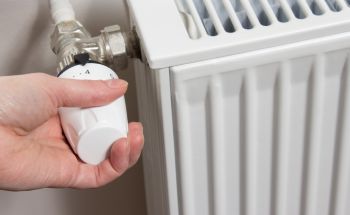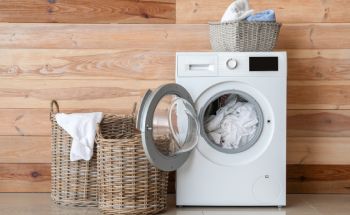At a time when the greatest heads of state have gathered for COP27 to talk about the climate actions to be taken to curb global warming, we wanted to share with you some eco-gestures to do on a daily basis and without it completely changing your way of life. There are certainly actions that you are already doing and we congratulate you on them. And maybe in the months or years to come, there are others that you will add to your list of eco-gestures.
This week, we're tackling energy consumption. The cold has arrived and you have certainly turned on your boiler. Here are some tips to reduce your energy consumption.

In cold weather, I leave my heating on when I leave

Yes yes, you read correctly! It is quite logical to say that when you go to work or go away for the weekend, you turn off all the heating. But this is not the ideal solution to save energy. Indeed, the savings you will make by stopping the radiators will be wiped out by the energy it will take to make up for the degrees lost (and you will feel it on your bill). It is therefore better to lower the temperature by a few degrees to save energy, but also money. This will also prevent moisture from setting in.
There is still an exception to this rule (as always)! If your home is very well insulated and has good inertia, you can afford to turn off the radiators more often. The accommodation will take months to warm up, because the temperature will have dropped slightly.
Tip : Lowering the average temperature of your home from 21°C to 19°C in a 120m² electrically heated house reduces the bill by 12.5%, a gain of €484 per year.

The day before is expensive… for nothing
It is true that putting an electrical appliance on standby will consume less than if it were on, but it still consumes a little. According to ADEME (Agency for the Environment and Energy Management), standby electrical appliances consume between 300 and 500kWh per year, or 11% of the electricity bill of an average household. This represents an average of €85 per year and this is not nothing for devices on break!
In order to avoid this overconsumption, remember to connect several devices to a power strip with a switch. With just one click, all the devices are turned off at the same time (and this avoids having to unplug socket by socket).
You can also opt for "programmable" sockets. Do not panic ! It is not a question of playing computer scientists, we mean by "programmable" the fact of being able to regulate hours of operation. Particularly practical for cutting your entire TV installation!
The devices that consume the most electricity in standby are the desktop computer and its screen, which represents an annual consumption of €23/year in standby.

I optimize the use of the washing machine and dishwasher

Regarding the laundry, it is not necessary to wash very hot with each wash. As a general rule, washing at 30°C is often sufficient. Washing at 90°C is reserved solely for the disinfection of linen.
As for the dishwasher, consider using the eco mode if the dishes are not too dirty and the food has not had time to stick. Once in a while (once a week is fine), you can use a hotter setting to get rid of grease that builds up in the dishwasher hoses.
In addition, whether for the washing machine or the dishwasher, it is not always wise to start the longest cycle. Even if it is not always easy to adjust each parameter, you can sometimes act on the time or simply remove the pre-wash.
In general, we prefer class A to A+++ household appliances, which are less energy-consuming. And if you have off-peak hours, remember to run your machine during these hours.

The lights are not systematic!
And yes it seems obvious to turn off the lights when you leave the room, but for some it is not yet a reflex. We have all seen this advertisement on television with the famous phrase "It's not Versailles here!". It's neither good for the planet nor for your wallet. It is also not systematic to turn on the light when you enter a room. If the sunlight is still present, take advantage of this brightness.
For the corridors, favor presence detectors (it also works for the toilets, if you have children ;) ). This will avoid forgetting to turn off the light. In addition, if the brightness is sufficient, it will not trigger.
Tip : Adapt the power and your lighting according to the use you have of it: 20 watts is perfect for reading or working, but 5 watts will be more than enough for watching television.






 By Cindy et Benoit
By Cindy et Benoit